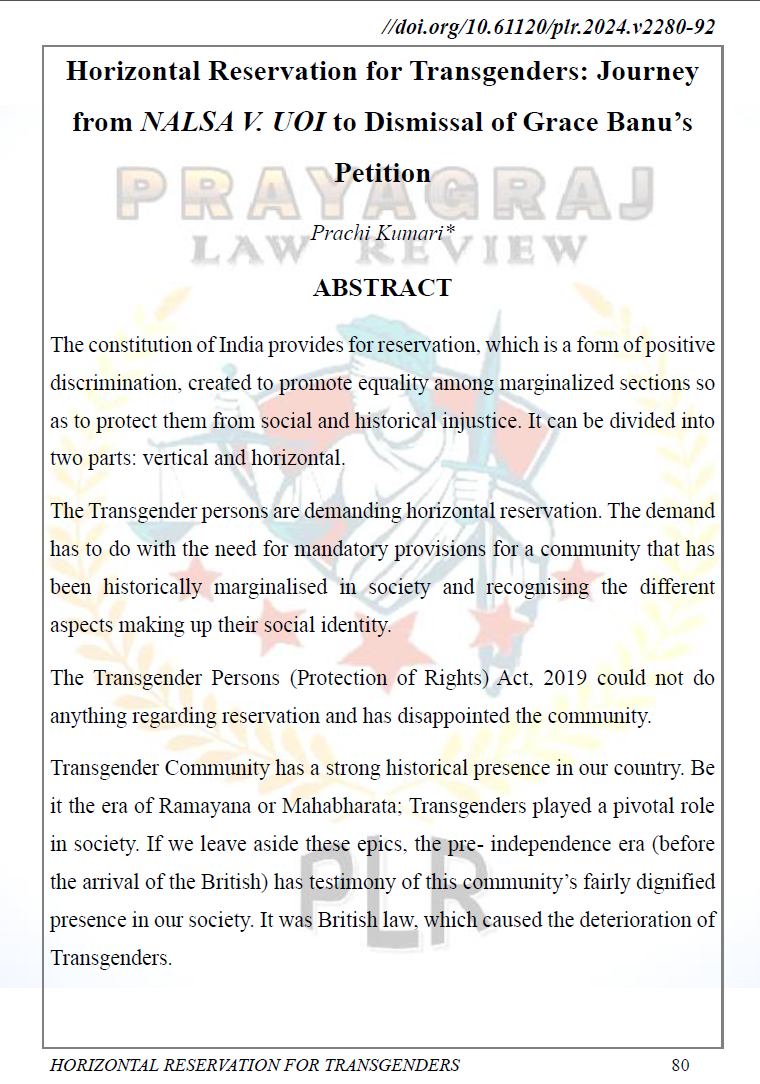Horizontal Reservation for Transgenders: : Journey from NALSA V. UOI to Dismissal of Grace Banu’s Petition

Published 2024-09-01
Keywords
- Transgender,
- Horizontal reservation,
- Transgender Persons (Protection of Rights) Act, 2019,
- , Grace banu case,
- NALSA vs. UOI
How to Cite
Copyright (c) 2024 Prayagraj Law Review

This work is licensed under a Creative Commons Attribution-NonCommercial-ShareAlike 4.0 International License.
Abstract
The constitution of India provides for reservation, which is a form of positive discrimination, created to promote equality among marginalized sections so as to protect them from social and historical injustice. It can be divided into two parts: vertical and horizontal.
The Transgender persons are demanding horizontal reservation. The demand has to do with the need for mandatory provisions for a community that has been historically marginalised in society and recognising the different aspects making up their social identity.
The Transgender Persons (Protection of Rights) Act, 2019 could not do anything regarding reservation and has disappointed the community.
Transgender Community has a strong historical presence in our country. Be it the era of Ramayana or Mahabharata; Transgenders played a pivotal role in society. If we leave aside these epics, the pre- independence era (before the arrival of the British) has testimony of this community’s fairly dignified presence in our society. It was British law, which caused the deterioration of Transgenders.
When we achieved independence, we kind of continued the British legacy of not treating Transgenders as an equal. We did not even recognise their existence. It took us more than six decades to recognise that Transgenders are ‘third gender’ and their existence should be accepted in the society. These six decades of non- recognition made them backward. In my opinion, the SC is right in declaring them as socially and educationally backward classes of citizens and extending all kinds of reservation in cases of admission in educational institutions and for public appointments.
